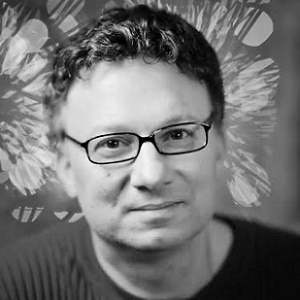Thomas Gagliano, MSW
Expert Life Mentor, Author & Speaker

At 51 years old, self-professed “childhood bully” turned successful businessman, Tom Gagliano, went back to college to become one of the good guys; one of the healers. Equipped with a Bachelor’s Degree in Marketing from Seton Hall University; he enrolled in the MSW program at Rutgers. He graduated in August 2011 and became a Life Coach in January of 2012.
In addition to his educational pursuits, Gagliano’s journey has included conquering both personal demons associated with addiction, as well as overcoming a myriad of self-destructive core beliefs. His decision to transform himself and become free from his past has had far-reaching effects. Today his work helps hundreds of people regain balance in their lives as well as eradicate negative perceptions rooted in childhood experiences.
Gagiano is now a Life Mentor, key note speaker, published author and Social Worker who facilitates four therapy groups a week. His focus is on the three principles he expounds to be the core elements of successful interpersonal relationships: Awareness, Action and Maintenance. His new book, The Problem was Me was co-authored with Abraham J. Twerski, M.D.; author of over 60 books including books co-written with Charles M. Schulz. Gagliano’s teachings can be found on BlogTalk Radio, webinars through his website, as well as on YouTube.
What made you want to enter your field?
My wife and children left me, and I realized I had to fix what was broken in me or I would spend a very lonely life. When I did that, my goal was to help others who suffered as I had from negative childhood messages, and to give my children what my father couldn’t give me, A SAFE PLACE TO SHARE MY FEELINGS WHATEVER THEY MIGHT BE.
Why did you change careers at the age of 51?
One of the most powerful messages I ever received came from my nine year old son. While watching a baseball game on television, my son asked me why the kids in the stands were so excited. I said some baseball players are heroes to the children. I suggested that someday one of those players might be his hero. My son paused and said to me, "They may be my hero someday, but you will always be my first hero." I was so touched, I could not reply. As parents we are our children's first heroes, whether we want the responsibility or not. I realized our childhood messages impact every part of our lives to the intimacy we have, our parenting skills, the careers we choose, even the roles we play
What were the greatest challenges for you educationally?
I couldn’t send out an e-mail when I went to school. My advantage was I sponsored two people in the MSW program, and they carried me through my tribulations with the computer. The first day I walked out the door I looked up in the sky and said to God, I hope you’re getting a kick out of this 27 years later. Well, I walked in class, looked up at the professor, and he happened to be a gentleman who attended my groups 5 years ago. You can’t make up stuff like this.
Please tell me about your background as a young person.
Dad was a vicious alcoholic. If he didn’t come home at a certain time it meant he would come home drunk and hurt someone. I was the kid that stood at the top of the stairs shaking. About 15 years ago, we had to put our dog to sleep, and I went into my son’s room put his arms around me and allowed him to cry on my shoulder. I gave him a safe place to cry, a place I never had as a kid but a place I was giving my son that day. That’s how I changed the messaging to my children. They can make a mistake; it doesn’t mean they are a mistake. They can fail at times; it doesn’t mean they are a failure.
What advice would you give someone who has the same dreams you had?
You need to walk the walk. You can’t tell someone to do something unless you did it yourself. You can’t give them what you don’t have.
What is special or rewarding about your job?
When I see parents change the messaging in their family. That’s a great feeling. We all want to do what’s best for our kids, but if we don’t work on our character defects we will hand them to our children whether we want to or not.
What one thing do you hope to have accomplished by the end of your career?
To get my message to as many people as I can.








